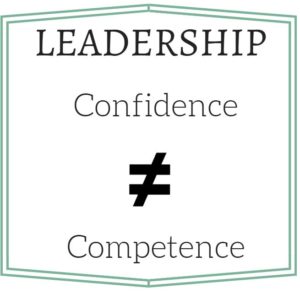 I was recently asked why there are still so few women in leadership positions in business. I was reminded of an article from 2013 in the Harvard Business Review that is still as relevant today as it was then. (And keep in mind, as you read further, the author is a man.)
I was recently asked why there are still so few women in leadership positions in business. I was reminded of an article from 2013 in the Harvard Business Review that is still as relevant today as it was then. (And keep in mind, as you read further, the author is a man.)
I think the author is correct when he states that the three main responses to the question of why there are so few women leaders are:
- They are not capable.
- They are not interested.
- They are both interested and capable but unable to break the glass-ceiling: an invisible career barrier, based on prejudiced stereotypes, that prevents women from accessing the ranks of power.
He also believes that conservatives tend towards the first reason, liberals go with number three and the rest think number two is the right answer. However, his personal hypothesis is that none are right. He believes that the reason is because our society, in fact, many societies, equate confidence with competence. And in fact, the two rarely go hand in hand. He does a brilliant job of explaining why we mistakenly conflate confidence for competence and since men are either taught or just given permission to be more confident, it hides the fact that they are actually incompetent. In fact, the most confident leaders are sometimes the most incompetent.
This, coupled with our inability in general as humans to confront one another, compounds the problem and men are led to believe they are good leaders simply because they have enough bravado or narcissism to pull it off. Keep in mind this article was written in 2013 – long before the glut of truly incompetent behavior displayed by current government leaders.
Most women do not get a “pass” on the competence factor – they either are, or they aren’t. I have worked with incompetent women leaders, but as the author states, it’s almost always those with narcissism or egotistical tendencies that mask the fact they are truly incompetent. However, these are the exception, not the rule.
How many leaders in our organizations, both male, and female, are actually incompetent if we look at them after removing our bias that confidence is competence? Unfortunately, I think it will be more than you think. And if you are a leader who is high on the confidence/narcissism spectrum? Maybe it’s time to look in the mirror and really assess your competence. If you don’t have an accurate assessment of your leadership competence, you cannot possibly see it in others.
The challenge is to reward competence, not bravado. Recognize leadership talent, not blind confidence or charisma. Mentor that talent and don’t let people blindly follow the snake oil salesmen – because even dressed up in nice suits, with multi-million-dollar paychecks, it’s still incompetence. Women may have an opening to lead more if competence is recognized over ego.
